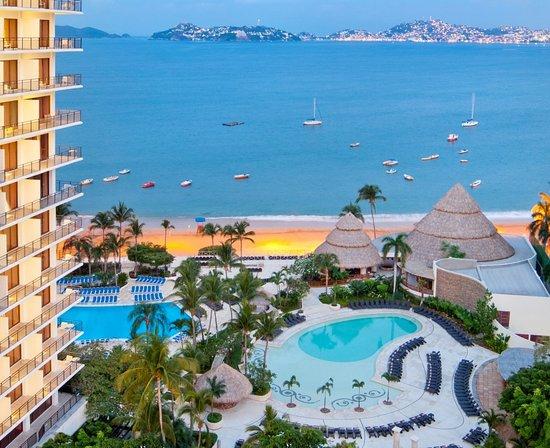Post-industrial society
Introduction
Post-industrialsocietyisalsocalledknowledgesociety.Post-industrialsocietyistheproductofthefurtherdevelopmentofindustrialsociety.ThescholarDanielBelldivideshumanhistoryintothreestages:pre-industrialsociety,Industrialsocietyandpost-industrialsociety.Inthepost-industrialsociety,theoreticalknowledgeisthecentralaxis,andtheintentionistocompeteforknowledgeamongpeople,andtechnologicalelitesbecomethedominantfiguresinsociety.Thereasonwhytechnologyexpertshavepowerdependsentirelyontheirprofessionaleducationandtechnicalexpertise.Fromthetimeitisaboutafterthewidespreadapplicationofelectronicinformationtechnologyinthe1980s.
Features
1.Theeconomicstructurehasshiftedfromacommodityproductioneconomytoaservice-orientedeconomy.Withthegradualindustrialization,theproductivityofeachindustrywillchange,whichwillinevitablyproducelarge-scaleMostofthelaborforceisturningtothedevelopmenttrendofthemanufacturingindustry;withtheincreaseofnationalincome,thedemandfortheserviceindustryisincreasing;accordingly,thelaborforcewillbetransferredtotheserviceindustry.Therefore,theprimaryandsimplestcharacteristicofpost-industrialsocietyisthatmostofthelaborforceisnolongerengagedinagricultureandmanufacturing,butintheserviceindustry.Theserviceindustryreferstobusiness,finance,transportation,health,entertainment,scientificresearch,education,andadministrativeworkinadditiontotheabovetwoindustries.
2.Occupationdistributionischaracterizedbytheriseofthetechnicalclass.Thesecondaspectthatdistinguishespost-industrialsocietyisthechangeinoccupationdistribution.Theso-calledoccupationaldistributionnotonlyreferstowherepeoplework,butalsoreferstowhatkindofworktheydo.Withthedevelopmentoftheservice-orientedeconomy,thefocusofworkhasshiftedtooffices,educationalinstitutions,andgovernmentdepartments,whichnaturallycausedashiftincareersto"white-collarworkers".TaketheoccupationalstructureoftheUnitedStatesasanexample.Itwasnotuntil1956thatthetotalnumberofwhite-collaremployeessurpassedthetotalnumberofblue-collarworkersforthefirsttime.Sincethen,theratioofthetwohasfurtherexpanded,andby1970ithadexceeded5:4.However,themostsurprisingchangeisthegrowthofprofessionalandtechnicalstaff.Thegrowthrateofthispartofstaffistwicethegrowthrateofthetotalnumberofemployees.Thereisanotherstatisticthattellsthewholepicturebetter,andthisisthenumberofscientistsandengineers.Theyarethekeygroupinthepost-industrialsociety.Thegrowthrateoftheentiretechnicalclassistwicethegrowthrateofthetotallaborforce,whilethegrowthrateofscientificandtechnicalpersonnelisthreetimesthegrowthrateofthetotallaborforce.
3.Theaxisprincipleisthattheoreticalknowledgehasincreasinglybecomethesourceofinnovationandthebasisforformulatingsocialpolicies.Industrialsocietyisasocietythatproducesgoodsandcoordinatestherelationshipbetweenpeopleandmachines.Thepost-industrialsocietyisasocietyorganizedaroundknowledgeforthepurposeofinnovationandchange,implementingsocialcontrolandguidance;inthisway,newsocialrelationsandnewstructuresthatmustbemanagedpoliticallyhavebeenformed.
Ofcourse,knowledgeisnecessaryforthefunctioningofanysociety.Butthedifferenceinpost-industrialsocietyliesinthechangesinthecharacteristicsofknowledgeitself.Theoreticalknowledgeoccupiesadominantpositionandbecomesthedecisiveforceinmakingdecisionsandguidingchanges.Theimportanceoftheorysurpassesexperience,andknowledgeiscodedintoanabstractsystemofsymbols(justlikeanaxiomaticsystem)sothatitcanbeusedtodescribedisparateexperiences.
Anymodernsocietytodaydependsoninnovationandsocialcontroloverchange.Theimplementationofsocialcontrolhascreatedtheneedforplanningandforecastinginsociety.Itispreciselybecauseofthischangeinpeople'sviewsonthenatureofinnovationthattheoreticalknowledgehasbecomeextremelyimportant.Inmodernsociety,thedevelopmentofafieldincreasinglydependsontheprogressoftheoreticalwork.Theoreticalworkputsexistingknowledgeintoanorder(coded)andpointsoutwaystoverifyitwithexperience.Infact,theoreticalknowledgehasincreasinglybecomethestrategicresourceofsociety,thatis,theaxisprinciple.Andschools,researchinstitutes,andintelligencedepartmentsareincreasinglybecomingtheaxisofanewtypeofsociety.
4.Thefuturedirectionistechnologycontrolandtechnologyevaluation.Accordingtothenewtechnologypredictionmodel,thepost-industrialsocietymaymasterthenewmeansofsocialtransformation,whichistoplanandcontrolthedevelopmentoftechnology.Asthesocietyreliesontechnologyandinnovationmore,theharmful"indeterminatefactors"inthesocialsystemalsoincrease.However,theemergenceofnewforecastingmethodsandplanningtechniquesmaycreateanewstageineconomichistory,thatis,consciouslyplanningtechnologicalchangesinadvance,therebyreducinguncertainfactorsinthefutureeconomy.
5.Decision-makingmethodsgivebirthtonew"intelligenttechnologies".Withthedevelopmentofsociety,peoplehavetodealwithmoreandmorecomplexproblems.Mostoftheproblemsdealtwithbyscientistsinthe18thand19thcenturieswerebivariateorthree-variableandfour-variableproblems.Thenextstageofthescientificprocessistheorderingofalargenumberofvariables,suchasthemolecularmotioninstatisticalmechanics,theaveragelifespanintheinsuranceindustry’sdonationtable,thegeneticdistributioninpopulationgenetics,andsoon.Inthesocialsciences,thereisalsothequestionof"generalpeople"—thedistributionofintelligence,therateofsocialmobility,andsoon.
Inthepost-industrialsociety,knowledgeandsocialissues,touseWeaver’smetaphor,are"organizedcomplexes",thatis,tomanagealargesystemwithalargenumberofinteractingvariablessothattheycanbecoordinatedwitheachother.Reachspecificgoals.Thetechnologytomanagesuchlargesystemsisnowavailable.Since1940,researchresultsinsomeemergingfieldsareverysuitablefordealingwith"organizedcomplexes".Emergingdisciplinesincludeinformationtheory,cybernetics,decisiontheory,gametheory,efficacy,stochasticprocesses,andsoon.Asaresult,manyspecializedtechnologieshavebeendeveloped,suchaslinearprogramming,statisticaldecision-makingmethods,Markovchainapplications,MonteCarlorandomizationmethods,etc.,aswellasdecision-makingcriteriaformaximumriskminimization,whichareusedtopredictaccordingtodifferentstrategies.Whataretheconsequencesofthedifferentdivisionsadoptedbythesituation?Thesetechnologiesarecollectivelyreferredtoas"smarttechnologies."Theapplicationof"smarttechnology"canstandardizepeople'sdecision-makingactivities,therebyrealizingorderlymasssociety.
Theoreticalimplicationsofmodernization
Withoutmodernizationtheoryanditsspread,thetermmodernizationcannotbeaspopularasitistoday.Modernizationtheoryisacollectivetermforresearchresultsonthecharacteristicsandlawsofworld,countryorregionmodernization.Inmodernizationtheory,thetermmodernizationisgivenanewmeaning.
1.Classicalmodernizationtheory
AsearlyasJuly1933,China's"ShenzhenMonthly"publishedaspecialissueof"ChinaModernizationIssues"andpublished26articlesdiscussingChina'smodernizationDifficultiesandroads.Inthe1930sand1940s,Chineseintellectualsconductedalotofresearchonthisissue.Regrettably,Chinesescholarshavenottakenastepforwardandformedamodernizationtheory.
Inthe1950s,agroupofAmericansociologists,economists,andpoliticalscientistssuccessivelycarriedoutmodernizationstudies.InJune1951,atanacademicseminarorganizedbytheeditorialdepartmentoftheacademicjournal"CulturalChange"sponsoredbytheEconomicGrowthCommitteeoftheAmericanSocietyofSocialSciences,everyonediscussedissuessuchaspovertyandunbalancedeconomicdevelopment;theparticipantsbelievedthattheuseof"Theterm"modernization"ismoreappropriatetoexplainthetransitionfromanagriculturalsocietytoanindustrialsociety.In1958,DanielLernerpublishedthebook"TheDisappearanceofTraditionalSociety:ModernizationintheMiddleEast",whichbelievedthatthetransitionfromtraditionalsocietytomodernsocietywasmodernization.In1959,theComparativePoliticsCommitteeoftheAmericanSocietyofSocialSciencesconvenedapoliticalmodernizationseminar,andsubsequentlypublished"PoliticsinDevelopingRegions"(AlmondandColeman,1960).
Inthe1960s,theWestsuccessivelypublishedanumberofinfluentialmodernizationresearchmonographs,andmodernizationtheorieswerebasicallyformed.Forexample,"TheStagesofEconomicGrowth:TheDeclarationofNon-Communism"(Rosto,1960),"PoliticalModernizationinJapanandTurkey"(WardandRasto,1964),"ModernPolitics"(Apt,1965)),"ModernizationandSocialStructure"(Levy,1966),"TheDynamicsofModernization:AComparativeHistoricalStudy"(Blake,1966),"ModernizationResistanceandChange"(Eisenstadt,1966),"InternationalSystemAndSocialModernization"(NettleandRobertson,1968),"PoliticalOrderinChangingSociety"(Huntington,1968),etc.Inthe1970sand1980s,modernizationtheoryfacedmanychallenges,andatthesametimeitwasfullydeveloped,formingacolorfulmodernizationtheory.
Westernscholarshavecarriedoutmodernizationresearchfor50years(50sto90s),andfinallyformedamodernizationtheorysystem.Althoughthistheoryhasmanyinherentflawsandhasbeencriticizedforthisreason,forexample,thistheorycannotexplainthedevelopmentofadvancedindustrialcountriessincethe1970s,butitisstillconsideredtobeusedtoexplaintherevolutionofhumancivilizationsincetheindustrialrevolution.Apowerfultheoryofsexualchangecannotbecompletelyreplacedbyanyothersocialsciencetheory.Wemightaswellcallittheclassicmodernizationtheory.
Theclassicmodernizationtheoryisnotasingletheory,butacollectivetermforthetheoreticalresultsofmodernizationresearchfromdifferentfieldsandscholars.Ifclassifiedaccordingtoresearchfields,theclassicmodernizationtheoriesaredividedintopoliticalmodernization,economicmodernization,socialmodernization,personalmodernization,andculturalmodernizationtheories.Indifferentfieldsanddifferentregions,modernizationhasdifferentcharacteristics(AttachedTable1.2),forexample,politicaldemocratizationandruleoflaw,economicindustrializationandspecialization,socialurbanizationandmobility,personalopennessandparticipation,andculturalrationalizationAndpopularizeelementaryandsecondaryeducation.
Althoughintheclassicmodernizationtheory,differentfieldsanddifferentscholarshavedifferentinterpretationsofmodernization,everyonegenerallyacceptsthetwobasicconnotationsofmodernization,whichareroughlythesameasthebasicmeaningofmodernization.
(1)Referstotheprofoundchangesthathaveoccurredindevelopedcountriesinthe16thcentury,especiallysincetheIndustrialRevolution;
(2)Referstothedevelopmentprocessofdevelopingcountriescatchingupwiththeworld’sadvancedlevelindifferentfields.
Modernizationisahistoricalprocess,includingthetransitionfromtraditionaleconomytomoderneconomy,traditionalsocietytomodernsociety,traditionalpoliticstomodernpolitics,andtraditionalcivilizationtomoderncivilization.Inthe1940sand1960s,developedcountriesinEuropeandtheUnitedStateshavecompletedtheprocessofindustrializationandenteredahighlydevelopedmodernindustrialsociety;developingcountrieshavenotcompletedtheprocessofindustrializationandarestillintraditionalagriculturalsocieties,andsomeregionsareevenprimitivesocieties.Therefore,intheclassicmodernizationtheory,modernizationcanbesummarizedinonesentence:thehistoricalprocessoftransitionfromagriculturaleconomytoindustrialeconomy,agriculturalsocietytoindustrialsociety,andagriculturalcivilizationtoindustrialcivilizationismodernization.
Accordingtotheclassicmodernizationtheory,modernizationisnotonlyahistoricalprocess,butalsoastateofdevelopment.Itcanrefertothestateinwhichdevelopingcountrieshavecaughtupwithdevelopedcountries(thestateaftercompletingthemodernizationprocess),orReferstothestateinwhichdevelopedcountrieshavereachedtheworld'sadvancedlevel.Becausepeoplehavedifferentunderstandingsoftheworld'sadvancedlevel,therearealsomanydrawbackswithinhighlydevelopedindustrialsocieties,andsocietyisconstantlyevolving,sothedebateonmodernizationcontinues.
Atpresent,therearemanydifferentopinionsaboutmodernization.Infact,theyarealldifferentexpressionsoftheabovedefinition,butdifferentopinionsemphasizedifferentpoints.Mr.LuoRongqu,aChinesemodernizationresearchexpertandlateprofessorofPekingUniversity,summarizedtheinterpretationsofmodernizationbyscholarsfromallovertheworldinhisbook"NewTheoryofModernization".Hebelieved:"Fromahistoricalperspective,inabroadsense,modernizationisaworldThehistoricalprocessofsexreferstoarapidchangethathumansocietyhasexperiencedsincetheIndustrialRevolution.Thischangeisdrivenbyindustrialization,leadingtoaglobaltransformationfromatraditionalagriculturalsocietytoamodernindustrialsociety.Doctrinehaspenetratedintovariousfieldsofeconomy,politics,culture,andideology,causingprofoundcorrespondingchanges;...Asaspecificprocessoftherecenthistoricaldevelopmentofmankind,therealizationofahighlydevelopedindustrialsocietymaybeamajorsignofthecompletionofmodernization.Itisappropriate."
Asforthegeneralcharacteristicsofthemodernizationprocess,scholarshavereachedabasicallyunanimousview.Inthe1970s,ProfessorHuntingtonofHarvardUniversityintheUnitedStatessummarizeditasthefollowingninecharacteristics;hebelievedthat"fromalong-termpointofview,modernizationisnotonlyinevitable,butalsothedesireofthepeople."
①Modernizationisaprocessofrevolution.Thetransformationfromtraditionalsocietytomodernsocietycanonlybecomparedwiththechangesintheoriginofhumanbeingsandthechangesfromprimitivesocietytocivilizedsociety.
②Modernizationisacomplicatedprocess.Itactuallycontainschangesinallareasofhumanthoughtandbehavior.
③Modernizationisasystematicprocess.Thechangeofonefactorwillconnectandaffectthechangesofotherfactors.
④Modernizationisaglobalprocess.ModernizationoriginatedinEuropeinthe15thand16thcenturies,butithasnowbecomeaworldwidephenomenon.
⑤Modernizationisalong-termprocess.Theentirechangesinvolvedinmodernizationwilltaketimetoresolve.
⑥Modernizationisastagedprocess.Intheprocessofmodernizationinallsocieties,itispossibletodistinguishdifferentlevelsorstages.
⑦Modernizationisaprocessofconvergence.Traditionalsocietiesexistinmanydifferenttypes,butmodernsocietiesarebasicallysimilar.
⑧Modernizationisanirreversibleprocess.Althoughtheremaybetemporarysetbacksandaccidentalsetbacksinsomeaspectsofthemodernizationprocess,overallmodernizationisalong-termtrend.
⑨Modernizationisaprocessofprogress.Duringthetransitionperiod,thecostandpainofmodernizationarehuge;inthelongrun,modernizationhasincreasedtheculturalandmaterialhappinessofmankind.
2.Newmodernizationtheory
Theclassicmodernizationtheoryranintotroubleassoonasitwasborn:howtoexplainthefuturedevelopmentofadvancedindustrialcountries?
Scholarshavefoundthatitisappropriatetousetheclassicmodernizationtheorytoexplainthedevelopmentprocessofdevelopedcountriesfromtheindustrialrevolutioninthe18thcenturytothemid-20thcentury.Itisalsoappropriatetouseittoexplaintheprocessofdevelopingcountriescatchingupwiththeworld’sadvancedlevel.Itisinappropriatetoexplainthefuturedevelopmentofadvancedindustrialcountries.Itcanbesaidwithcertaintythattheindustrialsocietyisnottheendofthedevelopmentofhumancivilization,butaninn.So,whatisthefuturedevelopmentprocessofdevelopedindustrialcountries?
(1)Post-modernizationtheory
Almostsynchronizedwithmodernizationtheoryresearch,Westernscholarshaveconductedresearchonthefuturedevelopmentofadvancedindustrialcountriesandhaveproposedmanynewtheories.Forexample,post-capitalistsociety(Darendorf,1959),post-industrialsociety(Bell,1973),post-modernism(Lyotard,1984;BestandKellner,1991;Griffin,1997),post-modernizationtheory(Crook,1992;Inglehart,1997),knowledgesociety(Lane,1966),informationsociety,networksocietyanddigitalsociety.Amongthem,post-industrialsocietyandpost-modernismarecloselyrelatedtoclassicmodernizationtheories,andpost-modernizationtheoriesarecloselyrelatedtoclassicmodernizationtheories.Correspondingtomodernizationtheory.
Attheendofthe1950s,AmericansociologistDanielBellgavebirthtotheideaofpost-industrialsociety.In1973,thebook"TheComingofPost-IndustrialSociety"wasofficiallypublished.Hebelievesthatthedevelopmentofhumansocietyisdividedintothreestages:pre-industrialsociety,industrialsocietyandpost-industrialsociety.Inthenext30to50years,developedindustrialcountrieswillenterapost-industrialsociety.
Postmodernismoriginatedinwesterndevelopedcountries.AccordingtoWebster’sdictionary,postmodernreferstothetrendsofthoughtthatemergedinthefieldsofWesternart,architecture,andcultureinthemiddleofthe20thcentury.Itanalyzesthevariousproblemsandcrisesofmodernsociety,opposesthephilosophyandpracticeofthemodernizationmovement,andadvocatestherevivaloftraditionalelementsandtechnology.Somepostmoderniststendtodenyanddeconstructmodernthought,andsomepostmodernistspaymoreattentiontotheconstructionandcreationofpostmodernsociety.Somepostmodernistsdividesocialdevelopmentintothreestages,namelytraditionalsociety,modernsocietyandpostmodernsociety;however,theyhavenotreachedaconsensusonthemeaningof"postmodern"time.Somescholarsbelievethatpostmodernismisaculturaltrendofthought,notaconceptoftime;somescholarscallthehistoricalperiodaftertheendofWorldWarIIthe"postmodernstage",andsomescholarsputforwardthe"postmodernera".Postmodernthoughtsarereflectedinthefieldsofpolitics,economy,society,scienceandtechnology.
Post-modernizationtheoryisasocialdevelopmenttheoryputforwardbyWesternscholars.Itbelievesthatsocialandeconomicdevelopmentisnotlinear.Sincethe1970s,thedirectionofsocialdevelopmentindevelopedcountrieshasundergoneafundamentalchangeandhasenteredthepost-modernizationstagefromthemodernizationstage.Inglehart(1997),aprofessorattheUniversityofMichiganintheUnitedStates,calledthechangesthathavetakenplaceinadvancedindustrialcountriessince1970aspost-modernization.Hebelievesthatthecoresocialgoalofpost-modernizationisnottoaccelerateeconomicgrowth,buttoincreasehumanhappinessandimprovethequalityoflife(attachedtable1.3).
ProfessorIngelhartistheexecutivechairmanoftheWorldValuesSurveysCommittee.80expertswhoparticipatedintheprojectconductedaquestionnairesurveyin43countries,andthesurveycovered70worldwide%spopulation.Atotalofthreesurveysofworldvalueswereconducted,from1981to1982,andfrom1990to1991.Themostrecentsurveywascompletedfrom1995to1998.

Thesurveyresultsshowthatsomecountries,suchasNigeria,havejustbegunmodernization;somecountries,suchasChina,areacceleratingmodernization;somecountries,suchasSouthKorea,areapproachingtheturningpointfrommodernizationtopost-modernization;somecountriessuchastheUnitedKingdom,GermanyandtheUnitedStateshaveenteredpost-modernization;theNordiccountries(Sweden,Norway,Denmark,Finland,etc.)andtheNetherlandsarebasicallypost-modernsocieties.
Somepeoplebelievethatpost-industrialsocialtheoryandpost-modernismarecomponentsofpost-modernizationtheories.Theyarereflectionsofpost-modernizationtheoriesinthefieldsofsocialeconomy,ideology,andculture.
However,whetheritispostmodernismorpostmodernizationtheory,itiseasytoconfusepeople.
Because,accordingtoWebster’sdictionary,“modern”referstothehistoricalperiodfromabout1500ADtothepresent.Thereisnocleartimelimit.Thecurrenterais“modern”.If"postmodern"hastimemeaning,thenwhenis"postmodern"?Isthecurrentera"post-modern"?
Ifthecurrenterais"post-modern",then"modern"and"post-modern"crossintime.Ifso,then,intermsoftime,"postmodern"isaself-contradictoryconcept.
Infact,asmentionedearlier,somescholarscallthepost-modernstageaftertheSecondWorldWar,andsomescholarscallthedevelopedsocietysincethe1970sthe“post-modernsociety”.Itcanbeseenthattheself-contradictionoftheconceptof"postmodern"hasalreadyoccurred.Moreover,"modern"isawidelyacceptedconceptoftime,whichhasbeenusedforhundredsofyears.Itisnoteasytochangeit.
Thetimeofthe"postmodern"conceptisnotself-consistent,whichwillinevitablyaffectthedisseminationandapplicationofpostmodernizationtheories.Inasense,thepost-modernizationtheoryisbasedontheclassicmodernizationtheory,andithasnotcompletelysurpassedtheconstraintsoftheclassicmodernizationtheory.
Intheviewofmodernizationtheorists,post-modernizationisalsoaresearchfieldofmodernizationresearch,whichisaboutthesocialdevelopmentofdevelopedcountries.Forexample,ProfessorBlackofPrincetonUniversityintheUnitedStatessaidinthebook"ComparativeModernization"publishedin1976thatthereisalargeamountofliteraturediscussinghighlymodernizedsocieties,andtheyareoftenreferredtoas"post-industrializedsocieties."
(2)TheSecondModernizationTheory
In1998,theChinesescholarHeChuaninspiredthepaper"KnowledgeEconomyandtheSecondModernization",andsubsequentlypublishedthe"SecondModernization-HumanThebook"EnlightenmentfromtheProcessofCivilization"(HeChuanqi,1999)comprehensivelyputsforwardthe"SecondModernizationTheory".
Thesecondmodernizationtheorybelievesthatfromthebirthofmankindto2100,thedevelopmentofhumancivilizationcanbedividedintofoureras:theageoftools,theageofagriculture,theageofindustry,andtheageofknowledge.Eacheraincludesthebeginning.Thehumancivilizationprocessincludes4erasand16stages;fromtheagriculturaleratotheindustrialera,fromtheagriculturaleconomytotheindustrialeconomy,fromtheagriculturalsocietytotheindustrialsociety,andfromtheagriculturalcivilizationtotheindustrialcivilization.Theprocessoftransformationfromtheindustrialagetotheknowledgeage,theindustrialeconomytotheknowledgeeconomy,theindustrialsocietytotheknowledgesociety,andtheindustrialcivilizationtotheknowledgecivilizationisthesecondmodernization;thedevelopmentofcivilizationiscyclicalandaccelerating.Theknowledgeageisnottheendofthecivilizationprocess,butapost.Therewillbeathird,fourth,andfifthmodernizationinthefuture.
Formajordevelopedcountries,thefirstmodernizationwilltakeapproximately210years(1763-1970),andthesecondmodernizationwilltakeapproximately130years(1971-2100).ThetimeboundaryofthesecondmodernizationisbasicallythesameasthatofInglehart(1997),aprofessorofpoliticalscienceattheUniversityofMichigan,whotook1970asthestartingpointofpost-modernizationindevelopedcountries.ThescientistMaddisonregarded1973asthestartingpointofthefifthstageofeconomicdevelopmentsincetheIndustrialRevolution.ThefivestagesofMadison'seconomicdevelopmentwere:1820to1870,1870to1913,1913to1950,1950to1973,and1973to1992.
Thesecondmodernizationtheoryisanewmodernizationtheory.Inthesecondmodernizationtheory,modernizationisgiventhreenewmeanings.
First,thefirstmodernizationreferstothetransitionfromtheagriculturaleratotheindustrialera,theagriculturaleconomytotheindustrialeconomy,theagriculturalsocietytotheindustrialsociety,andtheagriculturalcivilizationtoindustrialcivilization.Infact,itisthemodernizationdescribedbytheclassicmodernizationtheory.
Second,thesecondmodernizationreferstothetransitionfromindustrialagetoknowledgeage,industrialeconomytoknowledgeeconomy,industrialsocietytoknowledgesociety,andindustrialcivilizationtoknowledgecivilization.Itisanewmodernizationthatnotonlycoversthecontentofpost-industrialsocialtheory,post-modernism,andpost-modernizationtheory,butalsohasnewandricherconnotations.Sincethe1970s,scholarshavetalkedaboutneweconomy(knowledgeeconomy,informationeconomy,networkeconomy,digitaleconomy,etc.),newsociety(knowledgesociety,informationsociety,networksociety,learningsociety,etc.)andnewcivilization(knowledgecivilization,non-materialcivilization,etc.))Andotherresearchresultscanbeincludedinitscategory.
Thethird,futuremodernization,referstothenewmodernizationofhumansocietyafterthecompletionofthesecondmodernization.
Thesecondmodernizationtheorynotonlysuccessfullysolvedthedifficultiesfacedbyclassicmodernizationtheories(classicmodernizationContradictionswithpostmoderntime),andputforwardanewinterpretationofthelawofthedevelopmentofhumancivilization,predictingthefuturedevelopmentofhumansociety.Sheopenedanewwindowforustounderstandhumancivilizationandopenedupanewworldforhumandevelopment.
Thesecondmodernizationinvolvesallaspectsofhumanlife.Intheprocessofthesecondmodernization,changesinpolitics,economy,society,individuals,cultureandotherfieldswillbenewmodernizations(AttachedTable1.4),forexample,politicalknowledgeandrights,economicknowledgeandglobalization,andsocialnetworkingAndinnovation,individuallearningandindividualization,culturaldiversificationandpopularizationofhighereducation.
Comparedwiththefirstmodernizationinthesecondmodernization,somechangesarenew,suchasnetworking,intelligence,etc.;somechangesaretheinheritanceanddevelopmentofthefirstmodernization,suchaspoliticaldemocracySomechangesare"negation"ofthefirstmodernization,suchasthedeclineintheproportionofindustry,themigrationofurbanresidentstothesuburbs,andnaturalism.Inthefieldsofsociety,economyandculture,thesecondmodernizationistoalargeextentthe"elimination"oreven"negation"ofthefirstmodernization.Ifthemainsocio-economicgoalofthefirstmodernizationistoaccelerateeconomicgrowth,thenthemainsocio-economicgoalofthesecondmodernizationistoimprovethequalityoflife.Ifthefirstmodernizationistoplunderandconquernature,thenthesecondmodernizationistoprotectandreturntonature.
Thesecondmodernizationhasjustgonethrough30yearsandisstillinthedevelopmentstage.Itscharacteristicsandlawsareintheprocessofformationanddevelopment,andourunderstandingofitisverylimited.Indevelopedcountries,thefirstmodernizationhasbecomehistory,andthesecondmodernizationisinfullswing.Indevelopingcountries,boththefirstmodernizationandthesecondmodernizationareunavoidablechallengesandthereforefacedoublepressure.
Policyimplicationsofmodernization
Modernizationtheoryisadevelopmenttheory,anditmusthavepolicyimplications.Theclassicmodernizationtheorywasborninthe1950s,andithashadasignificantimpactonthedevelopmentpoliciesandinternationalpoliticsofdevelopingcountries.Thesecondmodernizationtheorywasborninthe1990s.Itwillhaveaprofoundimpactonthedevelopmentpoliciesandinternationalpoliticsofbothdevelopedanddevelopingcountriesinthe21stcentury.
1.Thepolicyimplicationsofclassicmodernization
Classicmodernizationtheoryisusedtoexplainthechangesfromthe1860stothe1960sindevelopedindustrialcountriesontheonehand,andisusedontheotherhandToguidethedevelopmentofdevelopingcountries.Thiswillinevitablyinvolvetherelationshipbetweenthedevelopedindustrialcountriesandthedevelopingcountries,whichtriggersdebatesaboutclassicmodernization.
Fordevelopedindustrialcountries,thepolicyimplicationsofclassicmodernizationaremainlymanifestedinhowtodealwiththerelationshipwithdevelopingcountries,whileatthesametimediminishingthedirectoppositionbetweenthetwoideologiesduringtheColdWar.
Fordevelopingcountries,thepolicyimplicationsofclassicmodernizationareveryrich,includingmodernizationstrategiesandapproaches,relationswithdevelopedindustrialcountries,andhowtodealwithtraditionalcultureissues;realizingmodernizationandbecomingadevelopingcountry’sGoal.Differentscholarshavedifferentunderstandingsofclassicmodernization,andtheirpolicyimplicationsarealsodifferent.Insummary,thereareroughlyfiveviewpoints.
(1)Classicalmodernizationistheprocessofbackwardcountriescatchingupwiththeworld'sadvancedlevel.Accordingtothisview,thepolicyimplicationsofclassicmodernizationare:backwardcountrieslearnandcatchupinvariousfields;forexample,Chinaproposed"agriculturalmodernization,industrialmodernization,nationaldefensemodernization,andscienceandtechnologymodernization",whichmeanslearningandCatchupwiththeworld'sadvancedlevel.
(2)Classicmodernizationisindustrialization.Accordingtothisview,thepolicyimplicationsofclassicmodernizationare:toachieveindustrializationandurbanization,andtomaintainsustainedeconomicgrowth.
(3)Classicalmodernizationismainlythechangeofvaluesandlifestyles.Accordingtothisview,thepolicyimplicationsofclassicmodernizationare:popularizeeducation,disseminatescience,promoterationality,democracyandfreedom,andrealizethetransformationfromagriculturalcivilizationtoindustrialcivilization,andtraditionalpeopletomodernpeople.
(4)ClassicalmodernizationisWesternization,EuropeanizationorAmericanization,etc.ItistheprocessbywhichdevelopingcountrieslearnfromdevelopedWesternindustrialcountries.Obviously,thisviewisunscientific.Accordingtothisview,thepolicyimplicationsofclassicmodernizationare:developingcountriesfullyintroduceWesternmodernideas,scienceandculture,democraticpolitics,modernsystems,modernmanagement,andadvancedtechnology.
(5)Classicalmodernizationisthefirstmodernization,thatis,theprocessoftransitionfromtheagriculturaleratotheindustrialera,agriculturaleconomytoindustrialeconomy,agriculturalsocietytoindustrialsociety,andagriculturalcivilizationtoindustrialcivilization.Thepolicyimplicationsofclassicmodernizationare:thetransformationfromagriculturalcivilizationtoindustrialcivilizationinpolitics,economy,society,culture,andindividuals,forexample,politicaldemocratization,economicindustrialization,socialurbanization,culturalrationalization,popularizationofelementaryandmiddleschoolsEducationetc.
Modernizationtheoryresearchisaninterdisciplinarysubjectinthefieldofsocialsciences,andresearchworkshouldadheretoascientificattitudeandmethod.Scienceemphasizesrationality,notemotion.Unfortunately,sometimes,somepeopledonotstudythelawsandpoliciesofmodernizationscientificallyandobjectively,butviewmodernizationforutilitarianpurposes,withemotionalorcoloredglasses;insteadofstudyingmodernizationfromtheperspectiveoftheprogressofhumancivilization,Butregardmodernizationasatooltoachieveone'sowngoals.Inthisway,deviationsinthetheoreticalresearchofclassicmodernization,andmistakesorevensetbacksinthepracticeofclassicmodernizationareforeseeable.
2.Thepolicyimplicationsofthesecondmodernization
Ifthefirstmodernizationischaracterizedbyindustrialization,urbanizationanddemocratization,thenthesecondmodernizationisItismainlycharacterizedbyknowledge,networkingandglobalization.Thesecondmodernizationfirstoccurredindevelopedindustrialcountries,anditspreadtodevelopingcountriesalmostsimultaneously.
Asearlyasthe1950sand1960s,scholarsindevelopedindustrialcountriesrealizedthatsocialdevelopmentisnotlinearandthatmodernindustrialsocietyisnottheendofthedevelopmentofhumancivilization.Socialandotherviewpoints,post-modernizationtheorybegantotakeshape.Aroundthe1970s,theeconomicandsocialdevelopmentofdevelopedindustrialcountriesexperiencedamajorturningpoint.Theproportionofindustrialoutputinthenationaleconomycontinuedtodecline,theproportionofindustriallaborinthenationallaborforcecontinuedtodecline,urbanresidentsmovedtothesuburbsandruralareas,andtheawarenessoftheecologicalenvironmentrose.Classicmodernizationrunsintheoppositedirection,andpost-modernizationideashavebeenverified.Inasense,post-modernizationthoughtcanberegardedasthe"forerunner"ofthesecondmodernizationtheory.
Inthe1970s,knowledgerevolutionandinformationrevolutionoccurred,high-techindustrydevelopedrapidly,theproportionofknowledgeindustryincreased,theproportionofknowledgeworkersincreased,andthecontributionrateofknowledgeandtechnologytoeconomicgrowthincreased.Thedevelopedindustrialcountriesadjustedtheirdevelopmentpolicies,andthesecondmodernizationstarted.Sincetheworldeconomyandinternationalpoliticsaremainlydominatedbydevelopedindustrialcountries,thesecondmodernizationofdevelopedindustrialcountrieshasrapidlyspreadtodevelopingcountries,sodevelopingcountrieshavetofacethedualpressuresofclassicmodernizationandnewmodernization.
Inthesecondmodernizationprocess,modernizationisdiverse,includingthesecondmodernizationindevelopedcountries,andthefirstandsecondmodernizationsindevelopingcountries.Theyinfluenceeachother,notisolateeachother.
Indevelopedcountries,thesecondmodernizationistheinevitabilityofhistoricaldevelopment.Itsmainpolicymeaningistoexplorethewaysofnewmodernization,andrealizeindustrialcivilizationinvariousaspectssuchaspolitics,economy,society,cultureandindividuals.Thetransitiontointellectualcivilization,materialcivilizationtonon-materialcivilization,forexample,politicalinternationalizationandpacification,economicknowledgeandglobalization,socialnetworkingandinnovation,culturalnaturalizationanddiversification,popularizationofhighereducation,andpromotionoflifelonglearningWait.
Indevelopingcountries,itisinevitabletocontinuethefirstmodernization,butwhentocarryoutthesecondmodernizationisastrategicchoice.Therearethreeoptionsfordevelopingcountries:thefirstistocontinuethefirstmodernization,andthenthesecondmodernizationwillbeconsideredinthefuture;thesecondistocarryoutthefirstmodernizationandthesecondmodernizationatthesametime;thethirdistoproceeddirectlytothesecondmodernization.Sub-modernization.
Thefirstroadisnotdesirable.Unlessacountrydevelopsindependentlybehindcloseddoorsanddoesnotparticipateininternationalcooperation;aslongasitadoptsanopenpolicy,theideas,concepts,knowledge,information,productsandservicesofthesecondmodernizationwillfloodin.Peoplegotohighplacesandwaterflowstolowplaces.Thetrendofhistoryisunstoppable.
Thethirdroadisunworkable.Becausewithoutthematerialandsocialfoundationsestablishedbythefirstmodernization,itisimpossibletoachievethegoalsofthesecondmodernization.
Thesecondpathisthemostrealistic.Duetothedifferentlevelsofmodernizationindifferentdevelopingcountries,differentcountriesshouldchooseandformulatedifferentdevelopmentstrategieswhencarryingoutthefirstmodernizationandthesecondmodernization,sothatavarietyofformsofnewmodernizationwillbeformed.
Itcanbeseenthatthemorereasonablechoicefordevelopingcountriesistocarryoutthefirstmodernizationandthesecondmodernizationatthesametimetorealizethecoordinateddevelopmentofindustrializationandknowledge.
Ifso,indevelopingcountries,themainpolicyimplicationsofthesecondmodernizationare:acceleratingclassicmodernization(suchasdemocratization,industrialization,urbanization,welfare,rationalization,anduniversalprimaryandsecondaryeducation)Atthesametime,learnandintroducenewmodernization,promotetheprocessofknowledge,network,globalizationandinnovation,andprotectculturaldiversityandecologicalenvironment.
Thesecondmodernizationisthefrontierofhumandevelopmentinthe21stcentury,andthereisnoprecedenttolearnfrom.Developedcountriescanonlyadvancethroughexploration,andmistakesandsetbacksareinevitable.Developingcountriesneedtoexplorewaystocoordinatethedevelopmentofclassicmodernizationandnewmodernization.Timelysummarizingtheexperienceofdevelopedanddevelopingcountriesandenrichingthetheoryofsecondmodernizationisanimportantcontentofnewmodernizationtheoreticalresearch.
Summary
Modernizationisthefrontierofthedevelopmentofhumancivilization.Thedevelopmentofhumancivilizationisendless,andthespeedofdevelopmentisincreasing.Theprocessofhumancivilizationisnotlinear,butseveralmajortransitionshavetakenplace;thecivilizationdevelopmentofasinglecountryornationcanbediscontinuous,fullofsetbacksandfailures.Therefore,modernizationisnotastraightline.Therearestagesbutnoendtomodernization.Modernizationaccelerates.Atthesametime,modernizationwillnotbesmoothsailing.
Modernizationisnotonlyprogress,butalsochoice,butalsoelimination.Modernizationisaprocessofdevelopment,includingtheemergenceofnewphenomena,theselectionofadvancedones,andtheeliminationofbackwardones.Innovation-choice-eliminationconstitutesthethreemodernnotes,whichareconstantlycombinedtoformadevelopmentchorus.Thiskindofdevelopmentaleliminationislikebiologicalevolution,naturalselectionandsurvivalofthefittest.
Modernizationincludesinnovation,selectionandelimination,whichwillinevitablyleadtochangesinthesocialstructureandredistributionofrights.Itisconceivablethatsomepeoplewithvestedinterestsintheoldsystemwillfinditdifficulttogiveupthefruitsintheirhandsandmaytrytoblockthemodernizationprocess.Asweallknow,everyonehasanoblesideandadarkside.Ifaperson'snoblemoralsarebroughtintoplay,he(she)willbecomeapromoterofmodernization;onceeviltakestheupperhandandvirtuetakesthesecondplace,thenhe(she)maybecomeadestroyerofmodernizationandastumblingblocktotheprogressofcivilization.
Modernizationrequiresunderstandingandrespect.Sometimes,theexistingsystemistheresultofthelastmodernization;withthenewmodernization,theexistingsystemisreplacedbythenewsystem.Peoplewhohavecontributedtothenewsystemwillnaturallyberespectedbysociety;thosewhohavecontributedtotheoriginalsystemshouldalsoberespectedbysociety,becausetheyrepresentdifferentstagesofhumancivilizationandprogress.Justlikewewillnotforgettheworldrecordcreatorofsportscompetitions.Theworldrecordisupdatedagainandagain,itisverynatural,thecreatorofthenewrecordisasbrilliantasthecreatoroftheoldrecord.
Latest: Chlormequat
Next: Population changes








